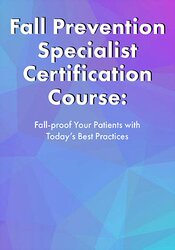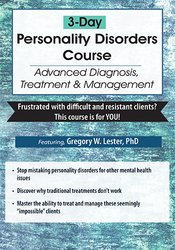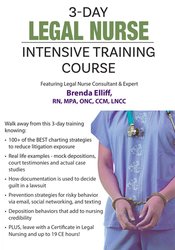Complex Childhood Conditions: 101 Strategies for Healthcare Professionals – Stephen Jones
Original price was: $199.99.$56.00Current price is: $56.00.
Complex Childhood Conditions: 101 Strategies for Healthcare Professionals – Stephen Jones Download. All the above sound familiar? These are just a few of t…
Salepage link: At HERE. Archive:
- Differentiate between “WNL” and baseline
- Identify actual cause versus symptom
- Sleep deprivation’s multisystem effects
- Dehydration: The problem involves fluids AND electrolytes
- Those nasty skin issues… solved!
- Consequences of anaphylaxis and the apnea-reflux connection
I can’t breathe. My head aches. I feel hot. My inhaler is not working. I can’t sleep. I can’t stop coughing. This rash won’t go away. My stomach hurts. Isn’t that a good pulse oximeter number?
All the above sound familiar? These are just a few of the complaints we hear from children when they are “not well”. Children may present with acute illnesses, flare-ups of chronic conditions or life-threatening complications. As pediatric healthcare providers, it is essential that we grasp and understand the inter-relationship of both complex and common pediatric conditions. During this full-day, interactive program, you will learn evidence-based strategies for the recognition, prevention, and management of a number of pediatric conditions that cause children to “not feel so good”, along with the skills to differentiate between CAUSE and SYMPTOM. Stephen will provide you with the knowledge you need through discussion, case studies and “fun”, addressing pharmacological, technological and non-pharmacological management, including critical assessment clues and interventions. You will leave this educational event feeling confident to manage complex childhood conditions!
- Evaluate the key clinical findings required for an efficient and comprehensive multi-system pediatric assessment.
- Interpret physical assessment findings and all the “numbers” to begin to understand the presenting pediatric problem.
- Determine underlying pathophysiology for multi-system conditions in identifying cause versus symptom.
- Discuss the interrelationship of the Immune/Respiratory/GI/Neuro systems and the significance of “linked” symptoms of fluids, mucous, allergies, infections, and reflux.
- Describe appropriate management for sports-related injuries, including concussions.
- Utilize evidence-based guidelines to successfully identify appropriate interventions for the child experiencing “temperature” issues and diarrhea/ dehydration.
- Select the most appropriate strategies to manage childhood asthma, croup and apnea.
Assessment
- Growth and developmental considerations
- Oxyhemoglobin dissociation curve
- Diagnostics considerations
- Pulmonary Function Testing (PFT)
- Airway clearance: Techniques & technologies
- What the chest x-ray is telling you
- Lab values: Normal vs. baseline
- Pulse oximetry: What does it really mean?
- The allergic cascade
- The concept of linked airways and airway inflammation
- Hygiene hypothesis
- Pulmonary non-pharmacological and technological management
- Oxygen therapy: Devices used for both low and high flow rates
- Mist/Humidification
- Medication delivery devices: MDI/spacer, nebulizers, dry powder inhalers
Sleep
- Patterns of “normal” sleep – influences of disruption
- Effective management: Nonpharmacological and pharmacological
Anaphylaxis
- Underlying physiology of how this occurs
- Effective management strategies: Preventive and acute
Respiratory Conditions
- Tips for quick identification
- Critical nonpharmacological and pharmacological interventions for:
- Apnea
- Childhood asthma: The “Step Management”
- Croup: “The Good, the Bad, the Ugly”
- The 2 Cousins: RSV & Human Metapneumovirus
The Art of Skin and Wound Care in Children
- Identify underlying causes for skin and wound issues
- Optimize the healing process
- Selecting the best product for children’s skin issues
Sports Related injuries
- Assessment and management of The un-“Magnificent 7”: Laceration/cuts, hematoma, contusions, strains, sprains, fractures, concussion
“Temperature” Issues
- Identifying and describing The Big 3:
- Hyperthermia, hypothermia and fever
- Evidence-based guidelines for The Big 3
Gastrointestinal Conditions
- GER
- Identifying and differentiating “GER” versus GERD
- The benefits of acid/base balance
- The 3 steps of appropriate symptom management – and prevention
- The “opposite” conditions: Constipation and diarrhea
- Underlying pathophysiology of both conditions
- Evidence-based guidelines for appropriate management
Here's an overview of the prominent keywords and a list of famous authors:
Business and Sales: Explore business strategies, sales skills, entrepreneurship, and brand-building from authors like Joe Wicks, Jillian Michaels, and Tony Horton.
Sports and Fitness: Enhance athleticism, improve health and fitness with guidance from experts like Shaun T, Kayla Itsines, and Yoga with Adriene.
Personal Development: Develop communication skills, time management, creative thinking, and enhance self-awareness from authors like Gretchen Rubin, Simon Sinek, and Marie Kondo.
Technology and Coding: Learn about artificial intelligence, data analytics, programming, and blockchain technology from thought leaders like Neil deGrasse Tyson, Amy Cuddy, and Malcolm Gladwell.
Lifestyle and Wellness: Discover courses on holistic health, yoga, and healthy living from authors like Elizabeth Gilbert, Bill Nye, and Tracy Anderson.
Art and Creativity: Explore the world of art, creativity, and painting with guidance from renowned artists like Bob Ross and others.
All the courses on WSOlib are led by top authors and experts in their respective fields. Rest assured that the knowledge and skills you acquire are reliable and highly applicable.
Specification: Complex Childhood Conditions: 101 Strategies for Healthcare Professionals – Stephen Jones
|
User Reviews
Only logged in customers who have purchased this product may leave a review.

Original price was: $199.99.$56.00Current price is: $56.00.












There are no reviews yet.